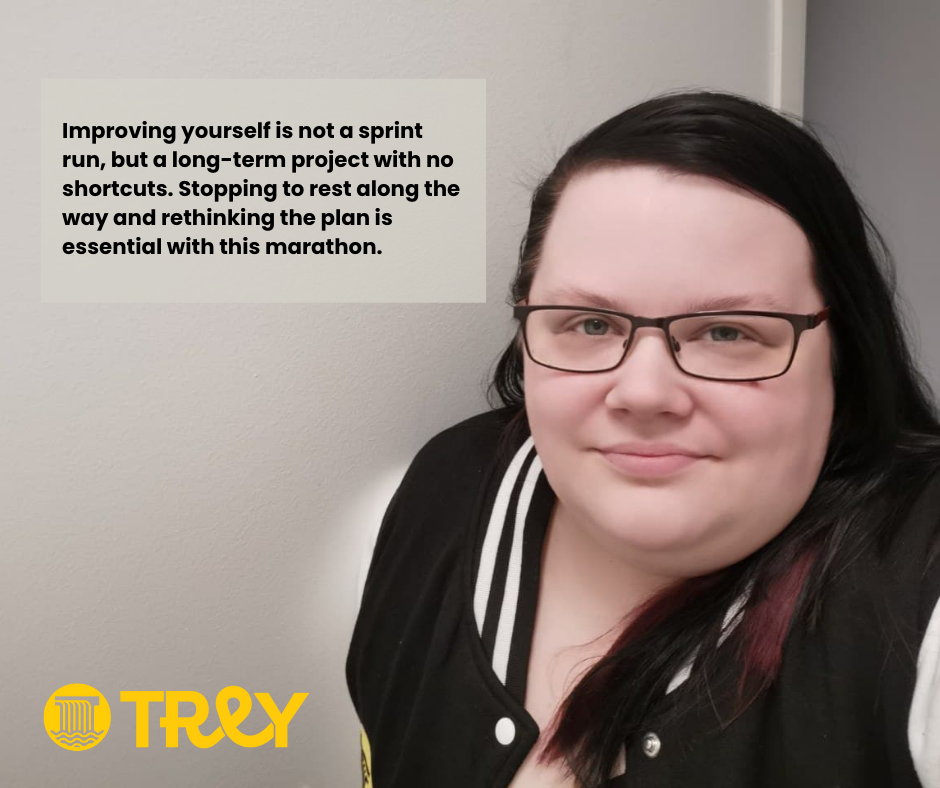About six months ago, I made the decision to do something about my constant habit of procrastination. How did it go, you ask? Well, let’s just say that we all have habits that stick harder than we’d like them to. To me, procrastination is a habit that doesn’t really affect my personal life but is mostly work related. Different projects, working on cases, participating in working groups, coordinating the bigger picture. With so much to do all the time, how do I even find the time to procrastinate?
The plan I made for myself six months ago looked somewhat like this:
- Make the prizes more easily accessible
- Make the surroundings better
- Prioritise tasks
- Break tasks down into smaller pieces
- Set yourself deadlines
- Change your attitude towards yourself and be merciful to yourself.
With this blog text, I try to look back and evaluate what happened with the different points on the list.
It is often thought that for an employee, the prize received from the work comes monthly with the pay-day. However, I think many of my colleagues agree that the prize we receive on our work is not only the payment, but also the way we can see our work make an impact. It doesn’t matter whether the impact was made after a short counselling discussion or as a result of a long-term project. Even the smallest wins in advocacy are worth celebrating. In this project, I rewarded myself in various ways: having naps, giving myself the permission to just lounge around after work, watch a series and order a food delivery. These might be casual, every-day things, but it makes reaching the reward easier.
The second point on my list was the working environment. In the times of remote work, creating a pleasant environment is not always easy. What makes a good environment? Clean, ergonomic workspace, with enough room for different kinds of work, or the corner of a sofa, where you can just lounge in and work in your own way? What is the ideal environment for me? Usually, I choose the most comfortable chair in my apartment, even if it isn’t the most ergonomic solution, because a soft surface to sit on makes working on difficult things more pleasant.
The third task on my list, prioritising, has always been one of the biggest problems for me. My way of prioritising does not take into account what should really be done first, but it is more about what affects other people and what affects just me. I’ve been trying to get better on this, and it is going fairly well, as there is always help with prioritising available at the office. But even after thorough discussions about my work tasks with my boss, what is the true impact of these discussions if I just can’t let things go? There’s still work to do with my own actions and a lot to learn about delegating tasks.

Long-term projects and working on things on a bigger scale are not new things on my desk. Be it a guide for educational affairs work, which can easily take a couple of years to complete, or coordinating the recruitment of student representatives, breaking these projects into smaller pieces is the only way for me to get the work done. This has also made it easier to set deadlines for myself. Doing things in smaller bits also makes it possible to reward myself more often 😉
The last point on my list was clearly the most difficult of all. The attitude I have towards myself and being merciful towards myself and my own work are things that I still need to work on daily. Thinking about it now, this part should probably have been first on the list, because now it has been easy to forget. I do acknowledge, on my part, that having mercy for myself and my own work is difficult. Am I doing the best I can when working with students’ issues? Did I bring up all the important points in this working group discussion? Can I be sure that I’ve given this my all?
Last summer, I had the first summer vacation in a long time where I didn’t think about work or all the things that were left unfinished before the vacation. I had weeks just for myself and everything I wanted to do instead of thinking about what I needed to do. During the summer, I finally got around to watching films I had meant to see, and even rewatched some animated films with my nephew. How does this relate to handling procrastination? There was this character in a film, called Oogway, who really made me think, and with these words I would like to offer some thoughts to you as well: “You are too concerned with what was and what will be. There is a saying: Yesterday is history, tomorrow is a mystery, but today is a gift. That is why it is called the present.” Procrastination is something I’ll have to deal with in the future as well, but maybe it doesn’t have be something that controls everything I do. Improving yourself is not a sprint run, but a long-term project with no shortcuts. Stopping to rest along the way and rethinking the plan is essential with this marathon. That is why I am going to make changes in my plan after these six months, with a reminder to myself: “Moving things forward does not always mean that you’re procrastinating or not giving it your all. It can also mean giving yourself the chance to breathe and re-evaluate your situation.”